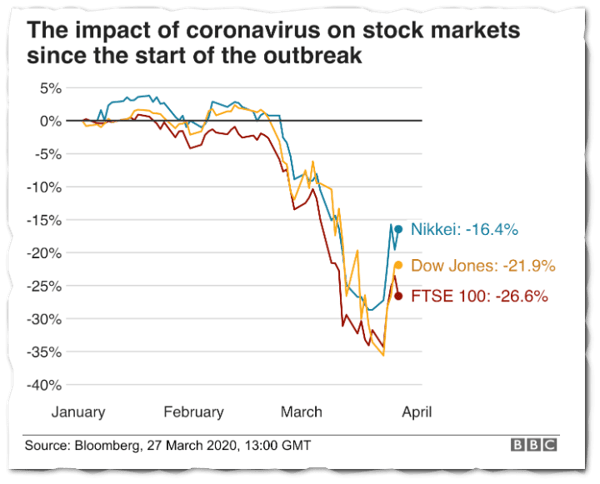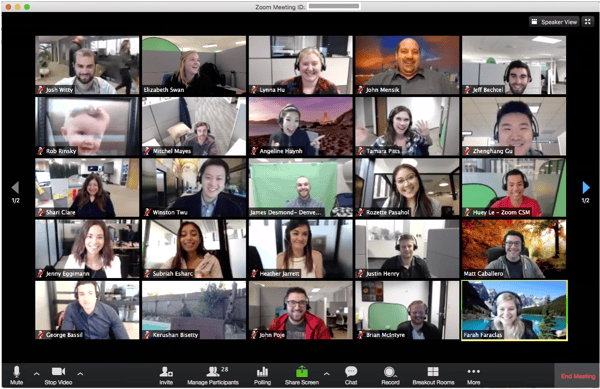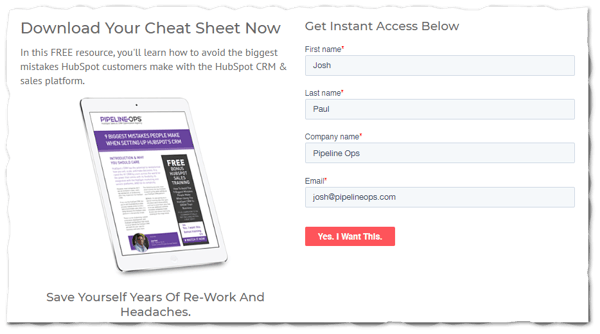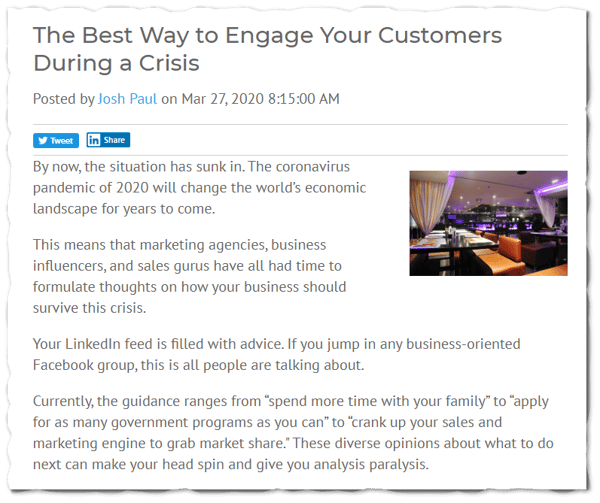As a marketer and business owner, I am ambivalent about marketing and selling during this global health crisis. I know my company’s HubSpot CRM and revenue operations programs make a huge difference for companies during normal times. However, what we’re facing today is anything but normal.
Here is what I know:
- People are (and should be) distracted with how they are going to protect and support themselves and their families.
- I don’t want to come off as insensitive (or at worst predatory), even though I have a service that will help their business.
- I want to serve more people and help them keep their businesses solvent during this crisis.

I’ve been wrestling with how to convey my company’s value under these circumstances. A lot of people are saying to keep prospecting, keep marketing as usual, and keep selling. I’m not sure if that is optimism or realism.
I don’t want to sell a lead generation program (and the expectations that go along with it) to a company whose customers are not buying right now. Sure, we can generate leads, but they won’t produce the ROI that the company seeks.
This reality leaves me with questions:
- Should I acknowledge the elephant in the room in my marketing messages?
- Should I continue to conduct business as usual?
- Should I preemptively adjust my sales and marketing programs to meet the needs of this fast-changing marketplace?
- Should I look for opportunities in this environment?
To start, I went looking for insight and clarity.
Where Do We Stand?
Over the past 10 days, I have been reading, listening to, and watching everything I can find on the current business landscape and where it is headed.
Unfortunately, I need to tell you upfront that I don’t have any answers yet. I don’t know how long this downturn is going to last, how deeply it will impact your business, or what things will look like after it is over.
Even the smartest business people I know don’t have a model for this situation.
 However, I was able to process a lot of opinions, data, and speculation (from people I trust) regarding what businesses should do.
However, I was able to process a lot of opinions, data, and speculation (from people I trust) regarding what businesses should do.
Currently, search traffic is down. Conversions have dipped slightly - depending on the market - bolstered by the fact that ad costs are also down since so many retail, local, and food service businesses are not spending on customer acquisition right now.
Why Customers Are Not Buying Right Now (And Where Can You Direct Sales and Marketing Now)
Customers buy your products when it solves urgent and pervasive problems for them. This is true for everything from sales engagement tools to paper towels for the rest room.
What happens when those problems shift in importance or drop dozens of spots on customers’ priority list? For many markets, customers are just not buying right now. The best product strategy, marketing tactics, or sales people can’t unpause buying decisions.
 So, what should you do if you can’t sell right now? I have been struggling with this question on behalf of my clients for several days and wanted to make sure I had done my research, analysis, and thinking before laying out my recommendations.
So, what should you do if you can’t sell right now? I have been struggling with this question on behalf of my clients for several days and wanted to make sure I had done my research, analysis, and thinking before laying out my recommendations.
The answer changes depending on your financial situation.
If you don’t have cash reserves or reliable accounts receivable to weather this storm, this should be your first priority. You need to hunker down and conserve as much cashflow as you can without damaging relationships with existing customers and employees.
I’m not a financial advisor, but SBA loans authorized by the CARES Act, lines of credit, and credit cards seem to be the most popular options right now to float labor and operational costs.
If you have the cash reserves to confidently know that your business will make it through this downturn, you are going to need to ramp up your business on the other side of this crisis.
I’ve outlined the eight best places to focus your sales and marketing efforts over the next 2-3 months to ensure that you are in the best possible position to grow once buyers in your market are open to making purchases again.
- CRM Data Accuracy
- Sales Process Clarity
- List Building and Nurturing
- Training
- Marketing & Sales Tool Utilization
- Support Existing Customers
- Build Partner Relationships
- Increase Authority
Area #1) CRM Data Accuracy
Chances are that your company is working remotely and will be for some time. For many companies, their CRM is mostly up-to-date (hopefully). Any slight inaccuracies are buoyed by casual daily interactions with coworkers and supervisors to get questions answered. The CRM data is important, but not the sole source of sales information.
Now, imagine how your company would function if the banter, casual interactions, and questions asked in passing went away.
This is the current reality for most companies as many have transitioned to a remote working environment and will remain this way for quite some time.

Source: Zoom
While working remotely, employees can still instant message, call, text, email, and video conference with each other. However, these online interactions can’t replace running into coworkers in the break room and discussing an issue you encountered with the sales data, popping into your sales manager’s office to ask a CRM question, or swinging by a sales rep’s cubicle to remind them to update their deals in the CRM.
Your sales reps, marketers, customer success team, and executives will be significantly more reliant on the data in your CRM to manage their day and steer the company.
Investing in the tools, processes, and training to ensure that your CRM data is clean and maintainable is paramount to working the opportunities that come through the sales pipeline when all reps work remotely. A thorough and accurate CRM will also help your company capitalize on fresh leads when your market unfreezes.
Area #2) Sales Process Clarity
When we are optimizing a CRM and sales process for companies, we often compare it to changing the engine on a race car while the car is speeding around the track. While many companies have no choice but to invest in gaining sales productivity and improving their “lead to sale” ratio while leads are coming in and deals are being worked, it is a lot easier to do during slower sales periods.
Some companies choose not to invest in CRM adoption or sales and marketing alignment because their car (i.e. company) is moving too fast.
They see how these programs increase revenue and reduce waste in your marketing spend, but they live with their current clunky sales process because sales are still closing and they don’t want the disruption at this time.
If sales are slow in your market, this is the time to make strides in simplifying your CRM and clarifying the sales process for your sales reps.
As your sales team vacillates between scared and frustrated, let them know you are supporting them. Show them that you are investing in making their sales processes and toolset more efficient so they can lead the charge in reigniting sales at even higher levels when we are all on the other side of this outbreak.
Area #3) List Building and Nurturing
People in your market may be putting off purchases right now for several reasons. Some are paralyzed with fear, others are conserving cash, while many are refraining from making long term commitments.
If this is a reality for you, there is little you can do about it. However, you can use this time to grow your opt-in list of buyers, influencers, and decision makers in your industry.
- If you have 100 people on your email list today, grow it to 2000 engaged subscribers in the next 60 days.
- If you have 1,000 people on your list, grow it to 7,000 people who receive valuable content, insight, and product messaging from you.
- If you have 10,000 people on your list, triple it in the next few months.
Build your list by creating valuable content offers, tools, training, and templates to entice buyers in your market to opt-in. Then, create an email follow-up sequence to strengthen your relationship with your list through indoctrination stories, additional high-value content, and opportunities to learn from your team.
 It helps to set your expectations that these leads will probably not turn into sales in the immediate future. Shifting your mindset in that way will keep you focused on providing value and keeping your list engaged.
It helps to set your expectations that these leads will probably not turn into sales in the immediate future. Shifting your mindset in that way will keep you focused on providing value and keeping your list engaged.
When we come out of this economic holding pattern, you will have an expansive list of people who follow your company, trust you, and are used to hearing from you. You may be surprised by the sales that do shake free during this crisis, as well as be poised to capitalize on these relationships from both a sales team and marketing perspective when the timing improves.
Area #4) Training
Good training is designed around an outcome. When people hire my company to train their sales team on their process and HubSpot sales tools, we have very specific goals for our training sessions. Companies are not paying for us to make sure people know how to click the right buttons or make the right decision. People hire us to:
- Close sales faster
- Keep their CRM and sales data accurate
- Handle more leads without losing a personal touch
- Move more leads down the sales pipeline
- Waste less marketing money on leads that don’t close
As you can see, there are real business objectives behind every training program we implement. When you are pushing your sales team hard to meet monthly goals or adjusting your processes on the fly, it can be difficult to find the time to train your sales team on consistency, efficiency, and productivity.
When there are tangible revenue benefits behind your sales and marketing training, there is a tremendous opportunity for ROI in using slower months to make sure your sales team is clear on the processes and tools that will help them turn more leads into closed deals.
BONUS TIP: Look for an immediate impact from your investment in training on your “lead to sale” conversion rate. Since fewer qualified leads may be coming in right now, each sales conversation is more important. Getting your sales and marketing teams “Super Bowl-ready” will stem the impact of this crisis and set you up for a windfall when the dam breaks.
Area #5) Marketing & Sales Tool Utilization
When I present at HubSpot conferences and user groups, I teach about a variety of tools and tactics. These range from advanced automation to basic build-in features.
I’m always surprised by the number of people in the audience who are not utilizing the foundational lead generation and sales features in HubSpot.
You are paying for your marketing and sales software. However, due to a lack of expertise, capacity, or time, many of the features you are paying for never get implemented. Your business still runs, you still get leads, and you still close sales. However, you are most likely doing so at a lower rate and at a higher cost than if you used the tools you have invested in that are designed to support your sales and marketing effort.
Use these weeks to carve out time for your internal revenue ops specialist or revops partner to set your company up to better utilize your sales, marketing, and customer success platforms.
Area #6) Support Existing Customers
It goes without saying that support and keeping your existing customers is the number one way to create certainty in uncertain times. However, your customers' mindsets have been completely upended in the past few weeks.
The things that were important to your customers last month may be nowhere near the top of their priority list today. Also, what you understand about your customers and your market today might be different at this time next week.
Doubling down on providing value, clarity, and guidance to your current customers starts with how you communicate with them. Conferences and networking events have been cancelled. You and your team are no longer in the same office and the same is true for your customers.
That means you need to re-assess how you convey your support for customers. Here are some of the tactics that we are implementing for our clients to help them support their customers:
- Virtual programs (like interactive AMAs and roundtables)
- Relevant (targeted) newsletters
- Video email communication
- Online resource centers
- Personal outreach
It can be hard to know how much your customers want to hear from you or how close your customers want you during turbulent times. We recommend following our framework for supporting your customers during a crisis.
Area #7) Build Partner Relationships
Partner relationships have always been the best source of consistent growth:
- Better than SEO? YES
- Better than cold calling? YES
- Better than Facebook, LinkedIn, or YouTube ads? YES
Borrowing someone else's credibility and reach to get in front of your target audience, generate leads, and get into sales conversations in the most efficient way to grow your business.
Here is how it works in a nutshell:
- Find people in your industry with a decent following and complementary services.
- Build trust and rapport with those people.
- Find a way to produce content together. Examples include: video interviews, webinars, and podcast episodes
- Promote that content to your list and have them do the same with their list. BONUS TIP: Put some ad spend behind promoting that thought leadership.
Both of you increase reach and authority. Your market gets valuable information. Everybody wins.
I bet you are wondering if this still applies when sales in your industry have stalled. The answer is that partner relationships are MORE important now than ever.
The following are four reasons why you should double-down on building relationships with players in your industry during a crisis.
- Strengthening partner relationships takes more time and attention than it does money.
- Trust and credibility are big differentiators in times when people are looking for answers and certainty.
- Partners who are usually too busy to coordinate joint marketing campaigns or co-produce content are now much more open and available.
- When this pandemic is behind us and money starts flowing in your market again, those relationships will catapult you to the center of your industry.
Where should you start? Look around. There are dozens, if not hundreds, of companies in your industry that are seeking a way forward, just like you.
First, pick your content format.
Next, start reaching out to people in your market and offer to highlight their expertise in your podcast, video series, virtual summit, or webinar.
Finally, grow your network by identifying the people in your market with whom you would like to build relationships. At first, look several influencer levels below the brand-name rock stars in your space.
Start following them and commenting on their social posts with valuable insight and authentic questions. After a few weeks (or months) of consistent engagement, reach out and see if they are open to an interview on your “show.” Cite how your audience could really benefit from their expertise.
Pipeline Ops is going to be launching our new podcast and video show in the next few weeks that will follow this exact strategy. Stay tuned at blog.pipelineops.com.
Area #8) Increase Authority
Information is flying fast these days. As we are stuck working from home and glued to news updates on social media, people are consuming content.
In the days since I began writing this guide, the number of “how to do business in a COVID-19 world” articles have gone through the roof. 90% of the updates on the Twitter, Facebook, and LinkedIn feeds are related to the coronavirus.
The bottom line: people are looking for information and they are available to consume it.
These are unprecedented times. That means the old rules apply less. The buyers in your market are open to getting advice from corners of their community that they have never looked at before. If you have answers for your market (even if it is not related to your product or the problems your solutions solve), this is your time to double down on building authority.
 Be an idea machine. However, make sure your ideas and insights are built on a solid foundation of facts and feasibility. Make sure your advice is practical, real, and helpful. Convey that you understand the nuance and fluidity of the situation.
Be an idea machine. However, make sure your ideas and insights are built on a solid foundation of facts and feasibility. Make sure your advice is practical, real, and helpful. Convey that you understand the nuance and fluidity of the situation.
What does that look like? Here are some tips for building authority during a crisis:
- Don’t forget about the long-term view. Balance the insight and advice that you offer between crisis management advice and evergreen advice that will be useful when things return to normal.
- Feel their pain. Make an extra effort to show empathy in order to build trust at the beginning of any crisis-related content you are producing.
- Don’t be a fixer. Messages that oversimplify the solution to a once-in-a-generation economic shutdown are not received well. Show that you understand the severity and complexity of the situation before offering tempered advice.
- Avoid “mansplaining.” The decision makers in your industry can think for themselves. They have already run through thousands of scenarios in their heads. Don’t come off as if you know how this ends or what the “silver bullet” solution is. Win authority by digging deep and providing insight in a collaborative tone. People are seeking ideas, validation, and different angles, not someone to tell them that they are thinking about things wrong.
BONUS TIP: Don’t forget to highlight this helpful content to the decision makers in your deals that are on hold.
While you have a big opportunity to grow your authority in your market, it can backfire and set your company back if you are not thoughtful about how you do it.
I’ve spoken with a half dozen CEOs in the past five days that have little tolerance for the unrealistic cheerleaders in their industry. People are hypersensitive to those who push ideas that are not grounded in reality.
When this slowdown is over, you want people to be grateful that you were there for them. Being their go-to resource and trusted advisor will be a long-term byproduct for you, but not your short-term goal.
Sales and Marketing Takeaway: Where to Focus When Sales Are Not Closing
This crisis is in no way a blessing in disguise for any corner of the economy. While I’m glad some people are being positive and touting the unseen opportunities that may arise from this global pandemic, I’d steer clear of blanket sugar-coated outlooks. There will be opportunity, but not for the large majority of businesses.
If you are the visionary leader in your company, I know you’re already looking at how you are going to increase revenue and market share on the other side of this crisis. Investing people, time, and potentially funds into the preceding eight areas will ensure that your company is ready to ramp up sales quickly while other players in your market are still getting out of the starting gate.

